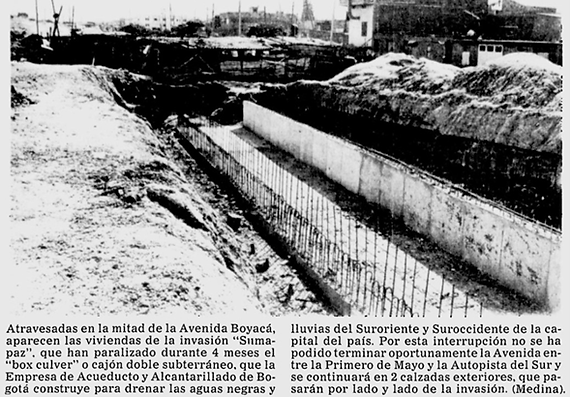
An interactive mini-museum about the uncontrolled environment in Bogotá during the 70s.

Electronics + UX
Overview
Description
Bogotá Out of Control (Bogotá Descontrolada) was an interactive mini-museum about Bogotá, the capital of Colombia, during the '70s. This installation was inspired in the socio-cultural context of Bogotá during that time, particularly, the use of public services and unbelievable information of the culture.
Role
Engineer + Interaction designer
Project parameters
3 weeks length - Project made with David Feliciano and Franziska Gromzig

Research
The research gave us key elements that helped us understand what was the most important facts of that time. As citizens of Bogotá, it was interesting to see the growth of the city, mainly in infrastructure. That time was crucial considering the construction of emblematic buildings and roads.
Although the information was interesting, it was not too provocative to get people's attention. As a result, we started reading at the newspaper of that time to go deeper into the culture and understand how people were reacting to that growth. We found two key aspects, the first one was the emergence of invasion neighborhoods, the second was a rising interest in new medications, anti-conceptive methods, and abortion.
This two key aspects inspired the topics of the installation.

The Mini-Museum


The Illegal Neighborhood was an interactive infographic that explains how these neighborhoods were born, the particular architecture they adopted, the impact of those in the operation of the public services, and the high percentage of the illegal buildings compared to the percentage of the legal buildings.
The user could explore important facts by turning on the lights in the structure. When all the lights were on, the cardboard tower lit up in red, indicating the overload of electricity that was happening at that time due to the illegal use of the service.
Because during that the color television arrived to the country, we created a TV that transmitted extraordinary news about the cultural context of the time. They were taken from the newspaper of the time and read aloud with a voice similar to the voice of the speakers of that time.
People could change the channels on the cardboard TV to listen to the news while seeing the picture that represents the story.

